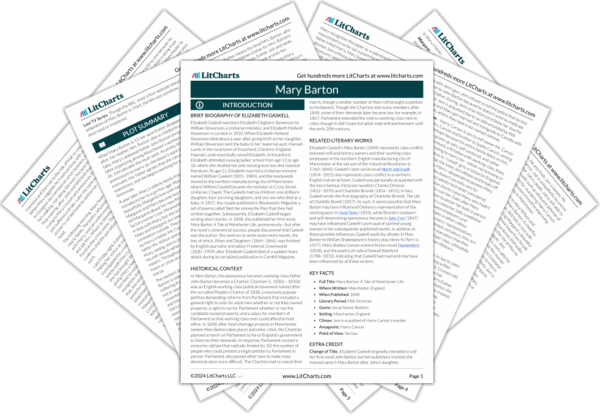An “income,” as used in this passage, refers to a sum of money received at intervals due to some capital, labor, or other valuable item. Essentially, Jem is giving the money that accrues from his patent to his dependent female relatives, raising their class status somewhat. This action shows Jem’s family-mindedness and moral generosity. Meanwhile, the conversation about Alice’s acceptance of poverty and momentary patience casts her once again as a Christian role model.
